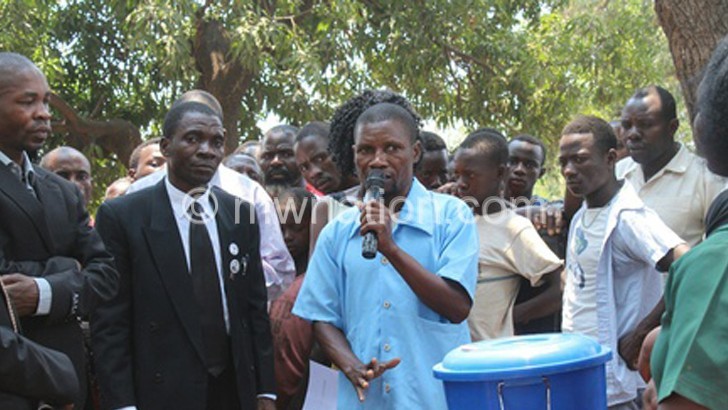‘Unhygienic practices killing mothers, babies’
Water Aid Malawi says poor water, sanitation and hygiene (wash) practices are responsible for slow progress in reducing neonatal and maternal rate in Malawi
Speaking on Thursday during the commemoration of Global Handwashing Day in Nkhotakota, Water Aid Malawi advocacy and campaigns coordinator Lloyd Mtalimanja said mothers and newborn babies continue to die due to unhygienic practices.

“One in every five babies die within their first 28 days due to sepsis, which comes as a result of poor hygiene and unsafe practices and 27 out of 1 000 babies die within their first 28 days,” he said.
Mtalimanja called on healthcare workers, guardians and mothers to practise basic personal hygiene, which includes hand-washing to safeguard both the babies and mothers from sepsis.
He said Water Aid is working together with other organisations to ensure availability of potable water and health facilities in communities to supplement the desired hygiene and sanitation practices.
“We are investing in solar-powered water pumps and promoting hygienic disposals as well as training both medical and non-medical personnel in infection prevention,” said Mtalimanja.
Nkhotakota district health officer Sosten Lankhulani says his office ensures that sanitation and hygiene practices are observed in all health facilities.
Global Handwashing Day is celebrated on October 15 each year. n





